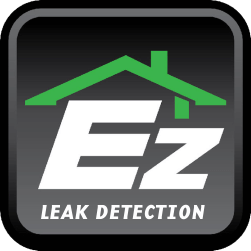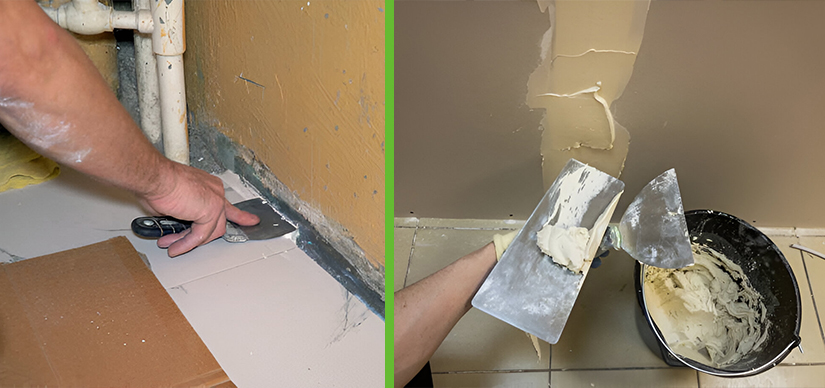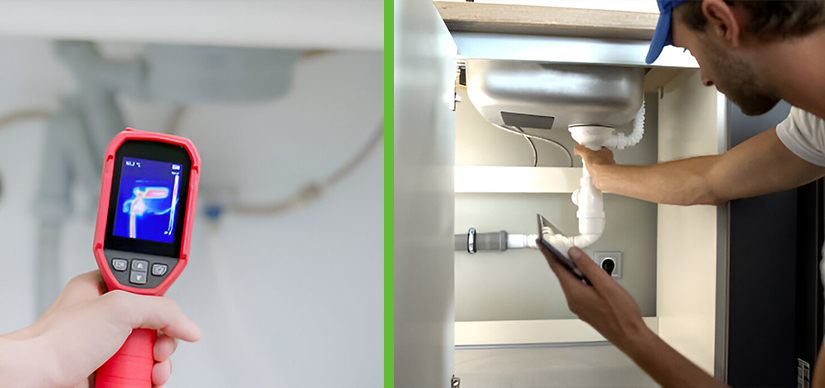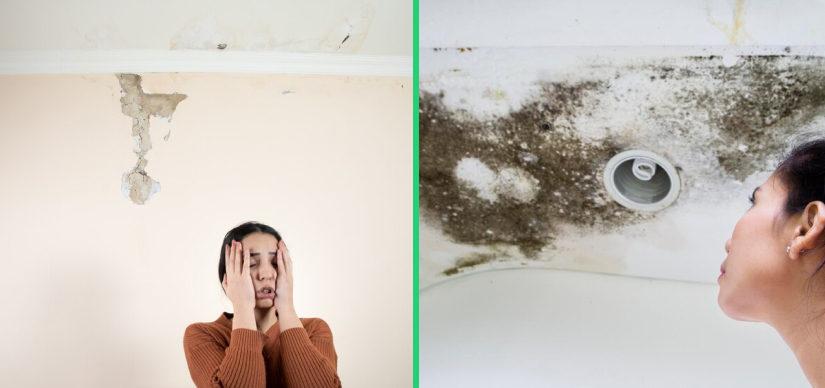Signs You Have a Leak In The Slab
Unusually High Water Bills:If you have experienced an unexpected increase in your water bill with no apparent cause being linked to the increase, you may have hidden a leak.
Damp or Warm Areas On The Floors:Damp or warm areas on some sections of your floor are relatively a clear indicator that water is for sure dripping down somewhere.
The Sound of Water Running : If within the house there is a sound of running water while all the taps and any appliances that use water are turned off, then a pipe somewhere is leaking.
Foundation Cracks : Shifting of the foundation of the house due to water damage from concrete slab leak in turn also creates cracks visible on walls or floors inside the house.
Mildew or Mould : In case you have begun experiencing a serious case of offensive odour or visible moulds growing inside your house, then it is possible
The urgency to respond when a slab leak repair is identified is quite obvious. For homeowners most of the instances would want to do the repair on the jagged edge themselves, but it is imperative to understand the procedure first. So, below are the standard slab leak repair process steps in San Diego:
Every slab leak repair starts with the location of the leak. This however, is the hardest part since the cause of the leak is usually under the concrete slab. To avoid cutting into the slab unnecessarily, plumbers use specialised equipment, like electronic leak detectors and infrared thermometers, to find the exact position of the leak inside the slab.
After the leak has been located, your plumber will decide how to carry out the repair. There are several different ways to do this:
Trenchless Pipe Repair: This is a method that does not involve excavation to repair the slab in which a leak occurs. Special tools are used in order to carry out the relining or replacement of a damaged pipe from its inner surface only eliminating the need to cause any external damage inside the house.
Direct Access Repair: With this approach, the plumber will breach the slab at the leak location to gain access to the pipe. This method however is more intrusive but it is usually the most recommended for serious leaks.
Rerouting: This is done when the pipe can no longer be repaired or when there are several leaks on the pipe. In this case, the plumber will cut the leaking pipe and instead of putting another identical pipe, he will run it through the ceiling or outside the walls.
There is a semblance of a method at least on paper and repairs begin. If a small leak is detected, a plumber might simply manage to patch the leak. But if the entire pipe is banged up without any chance of fixing it, a more drastic approach may be taken either in replacing the damaged portion of the pipe or by changing its course.
After conducting the repair works, the plumbing professional will perform a detailed check-up of the plumbing system and undertake testing of the entire system to ensure that there is no leakage.Once all is clear, they shall fill any openings that may be left on the ground and restore the cleanliness of the affected area.
Equipment: Professionals all possess the right apparatus including experience to professionally locate and fix slab leaks with no harm to the surrounding of the house.
Knowing Where One Stands:When slab leaks, one has to be cautious not to take the matter in his or her own hand. It is because there is an alternative that is better recommended – calling an expert plumber.
To Prevent Additional Harm: In the case of damage done to the slab leak repair, it is a guarantee that damage will occur from the repaired area especially considering foundation area and suitability of water for use.
Value for Money: It may be costly to bring in a specialist but the cost of fixing damages caused by self-implementation of repairs is much higher.
It is often said that prevention is better than cure, and this is more so in repairs such as slab leaks that are so expensive and inconvenient. There are hence some few pointers to aid in avoiding future incidences of leaks:
Watch Out for High Water Pressure: High pressure is known to cause damage on pipes and eventually result in leaks. Ensure the water pressure is at the recommended levels.
Periodical Checkups on Bad Plumbing Systems: Engage the services of a qualified plumber and get the pipes checked from time to time to prevent any risk turning into a big issue.
Replace the Old Damaged Pipes: If you live in a home with any old damaged pipes, consider changing them as these new materials are resistant to corrosion and will not leak.


















